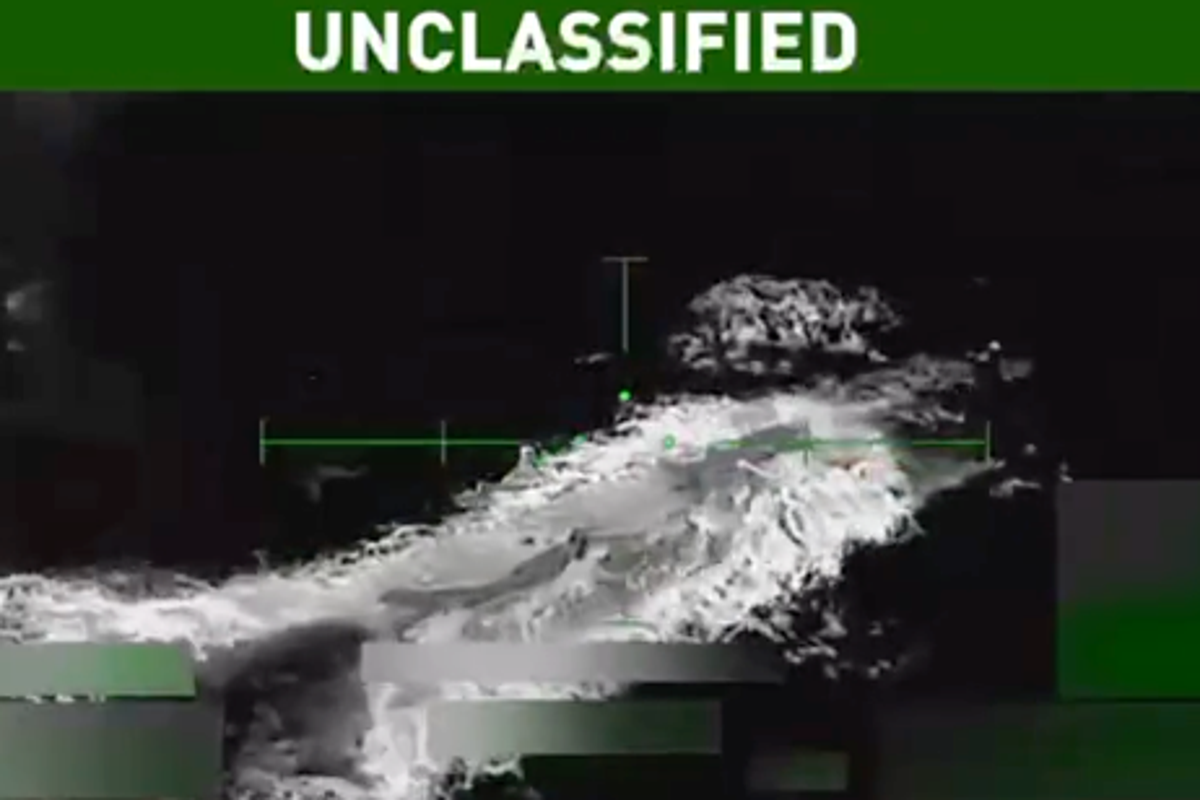The Trump administration is repatriating two people who survived a U.S. military strike on Thursday against an alleged drug running submarine in the Caribbean, the president has confirmed.
“The two surviving terrorists are being returned to their Countries of origin, Ecuador and Colombia, for detention and prosecution,” President Trump wrote on Truth Social on Saturday. “No U.S. Forces were harmed in this strike.”
Two others were killed in the long-range attack, Trump said, bringing the overall death toll of such recent strikes to 29.
The U.S. Navy reportedly rescued the survivors following the Thursday attack.
A Navy search and rescue team was deployed and the survivors were put in detention on a Navy ship in the region in international waters, officials told The New York Times.
The detentions posed complicated legal questions for the U.S. over whether to hold the survivors as indefinite wartime detainees or transfer them to military or criminal authorities for prosecution.
The latter option may open the strikes to legal scrutiny or expose the details that went into planning them, which have largely been kept out of the public eye so far.
Prior to Thursday’s attack, 27 people had been killed as part of the Trump administration’s recent anti-drug operation in the region, which the White House has controversially declared to be a formal armed conflict against drug cartels.
Details have been scarce about what intelligence the U.S. is using to conduct these strikes, and the names of those killed have not been released.
Chad Joseph, 26, of Trinidad and Tobago, may have been one of six people killed in a similar strike earlier this week, according to his family.
Joseph, a fisherman from the village of Las Cuevas, had been living in Venezuela in recent months. His family said he frequently made trips across the Caribbean in his work as a fisherman.
“I don’t want to believe that this is my child,” his mother, Lenore Burnley, told The New York Times. “Is this really true?”
Joseph’s family denies he is a drug trafficker.
The strikes have come in for bipartisan criticism from Congress, which has sole authority to declare war and hasn’t authorized any new hostilities in support of the Caribbean operation.
On Friday, a group of senators said they would force a vote to block the Trump administration from attacking Venezuela, which the White House accuses of working in coordination with drug cartels.
Admiral Alvin Hosley, the head of U.S. Southern Command, which is overseeing the strikes, will retire at year’s end, according to the Department of Defense, reportedly after Hosley expressed concern about the strikes.
Venezuela, whose citizens are thought to have been killed in prior strikes on the boats, has fiercely criticized the U.S. military buildup in the region and mobilized its own troops and militia forces.
Legal observers have warned the strikes may not be legal, despite the White House insisting the U.S. is formally engaged in an “armed conflict” with drug cartels that the president has labeled “unlawful combatants,” freeing up extraordinary wartime powers.
“All available evidence suggests that President Trump’s lethal strikes in the Caribbean constitute murder, pure and simple,”Jeffrey Stein, director of the ACLU’s National Security Project, said in a recent statement. “The public deserves to know how our government is justifying these attacks as lawful, and, given the stakes, immediate public scrutiny of its apparently radical theories is imperative.”
President Trump told reporters on Wednesday he has authorized CIA missions inside Venezuela as part of his anti-drug crackdown.
The president added that the U.S. was looking at land operations against Venezuela following the naval strikes.
The president claimed Friday Venezuelan leader Nicholas Maduro has offered overtures to lessen tensions in the region.
“He has offered everything,” Trump said, referring to Maduro. “You know why? Because he doesn’t want to f*** around with the United States.”

